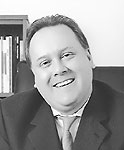 Phil Micans studied Food & Vitamin Technology at South London College and afterward he completed an applied science bachelor’s degree from Rochville in Pharmacy. He also holds a masters degree in biochemistry from the University of Canterbury. Phil Micans studied Food & Vitamin Technology at South London College and afterward he completed an applied science bachelor’s degree from Rochville in Pharmacy. He also holds a masters degree in biochemistry from the University of Canterbury.
Having been actively involved in the anti-aging field since the 1980’s, Phil has held the positions of Editor-in-Chief of the Antiaging Magazine, Director of Research and Development to Inner-Age, co-writer of The New Millennium Guide to Antiaging Medicine and Chairman of the International Antiaging Congress.
He is also advisor to the British Longevity Society as well as the innovative bi-annual preventative medicine Stromboli conference, organised by Professor Walter Pierpaoli.
Phil realized that the information age has created a new generation of informed individuals and physicians who view things globally and want to obtain the best possible treatment based on a scientific perspective. As such, in 1991 he became a founding member of International Antiaging Systems (IAS), where he maintains the position of Vice President.
Phil has dedicated himself to studying the latest research about antiaging medicine and helping to make available innovative products to health professionals, as well as their patients who need them. Proud to be part of one of the world’s leading organizations in antiaging medicine and keenly interested in the orthomolecular approach to medicine, Phil firmly believes that antiaging medicine is the ultimate form of preventative medicine, and that it will be the next major leap in the health of mankind.
The clinical
applications and implications of biological
ageing measurement for anti-ageing medicine.
Objectives:
- To highlight the science
and research behind biomarkers.
- To identify which biomarkers
are the most practical and cost effective
to utilize.
- To discuss the value and
importance of biomarkers as a validation tool
for preventative medicine.
Abstract:
The interested attendee will
learn a brief history of the biomarker, and
its importance to observe the individual biological
ageing rates of a patient, as well as determining
an overall “holistic” biological
age.
From the data accumulation (knowledge
acceleration) and clinical relevance standpoints,
these factors should be considered to be vital,
particularly as anti-aging medicine wishes to
“justify” its role in the “treatment”
of what “mainstream” medicine considers
already “healthy” individuals.
However, biological aging measurement
could be the “measure-treat-measure”
tool to evaluate a patient’s baseline,
as well as monitor and demonstrably show the
beneficial progress of “alternative medicine.”
The attendee of this lecture,
will also hear about the results of a 2-year
study of the published papers of biological
aging markers, and those that have been highlighted
by a medical panel as being of practical benefit
in a clinical environment. Those parameters
of choice will be discussed, along with some
of the actual biomarkers in question.
The attendee will therefore
be aware of the past and present situation regarding
biomarkers, and will also be introduced to the
future, specifically some patients biological
aging visualizations will be seen. These visualizations
are from a unique and new software based program,
called Inner-Age.
|